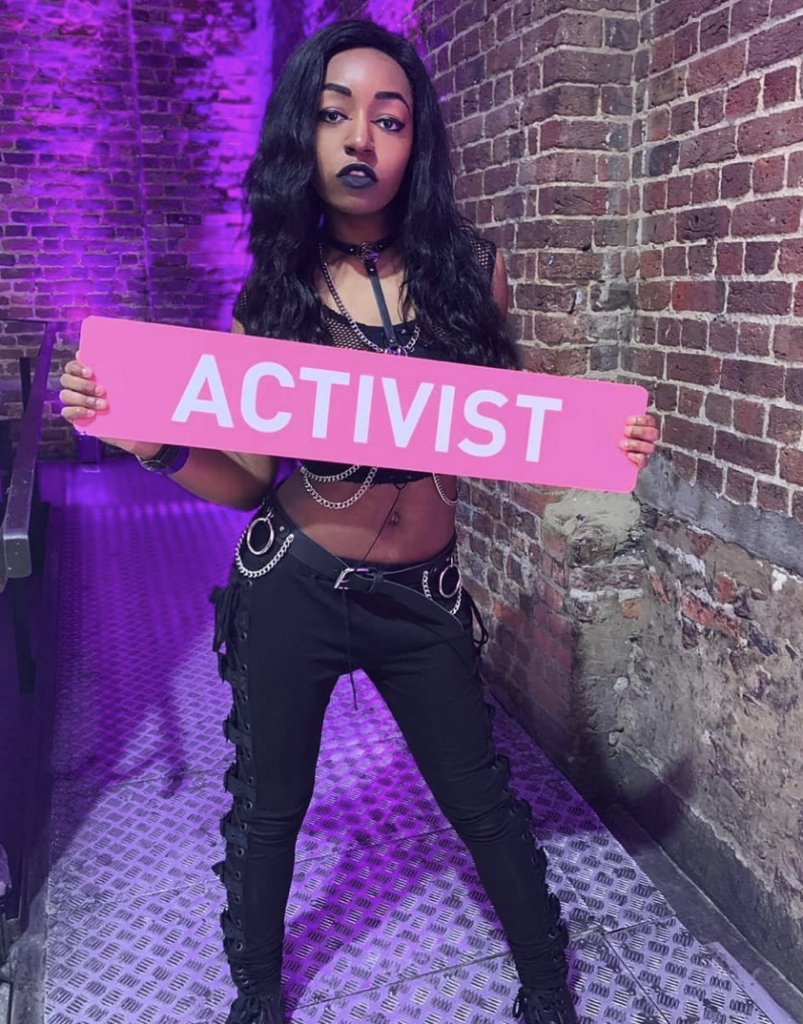Hi everyone! I’m Yasmin Benoit, a model and asexuality activist. I’m delighted to have the opportunity to write another article for Ditch the Label. This time I’m here to tell you how you can be the best ace ally during Pride this year – and all year round! It doesn’t take much to be an ally and make a real difference for an asexual person, or the wider asexual community.
1) Educate yourself about asexuality
If you’re going to be an ally for asexual people, it’s important to understand what asexuality is, and what it means to be on the asexual spectrum. There loads of information online about asexuality. It might also be helpful to speak to an asexual person and ask them respectful questions, if they’re open to it. Keep in mind that there are a range of asexual experiences, which vary depending on where you are on the asexual spectrum, and what your romantic orientation is. If you want to find out more you can read about asexuality here and this article on 10 Things You Need to Know About Asexuality here.
2) Don’t exclude asexual people from Pride events
Pride is supposed to be a welcoming and inclusive space for those who don’t fit into the heteronormative box, so there is definitely a place at Pride events for asexual people. Debates surrounding whether or not asexual people should be included in Pride celebrations are alienating for the community. If you want to be a good ally to asexual people, then you should support our right to celebrate who we are in an LGBT+ space, as part of the wider queer community.

3) Be morally supportive
There is nothing wrong or abnormal about being asexual, but pressures from our society can make asexual people feel like they’re broken. If you know someone who is coming to terms with their asexuality, listen to them and be encouraging, just as you would to someone who is coming out as gay or transgender. Don’t be dismissive of their asexuality, or think that you know more about their bodies and their minds than they do.
4) Use inclusive language
Asexual people have a rather unique perspective of sexuality and romantic relationships. It’s important to keep that in mind with the language you use. Statements that make sex, sexual relationships and romantic love sound like a universal necessity for every human being might seem harmless, but they’re actually alienating for those who don’t feel that way. It’s important to remember that not all sexual identities or romantic relationships actively involve sex, and they don’t need to involve sex to be valid.

5) Include asexuality in the conversation
With Pride celebrations comes discussions around sexuality and relationships. These conversations are incomplete without an asexual perspective. Whether you’re just having a casual chat in the park or whether you’re hosting a panel in front of a hundred people, remember that asexual people exist and our experiences count. It doesn’t take much to add, “But not everyone’s interesting in that,” during a conversation, or to find an asexual writer or speaker to lend their voice on a larger platform. Anything that contributes to positive asexual visibility is helpful for the community.
6) Do your part to spread the word
There are a range of resources online about asexuality – whether you want blog posts, journal articles, YouTube videos, fiction, or advice straight from the mouth of asexuality activists. Even if you have come to understand asexuality, there are many people out there who don’t, and this contributes to misunderstandings and stereotypes surrounding the community. Share asexual content with people you know. You might intrigue people who are eager to learn more about asexuality, as well as people who might be asexual themselves without realising it yet.
For more from Yasmin, you can follow her Instagram here
If you have a question about sexuality, relationships, or anything else that might be bothering you, you can reach out to the Ditch the Label Community here, and we will listen to you.













